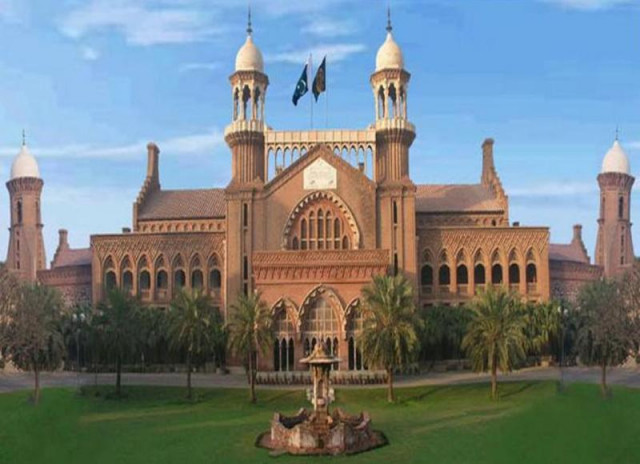Lawyers’ burning case: Jail sentences of four officers upheld
Cops had sprayed torch-bearing rally in support of CJP with flammable liquid.

The complainant, Advocate Sheikh Muhammad Usman, said the lawyers were delivered a threat purportedly from the DPO. PHOTO: lhc.gov.pk
The Lahore High Court on Wednesday upheld the sentence of four police officers accused of spraying a flammable liquid on lawyers bearing torches during a protest in support of the chief justice of Pakistan on May 4, 2007.
The Faisalabad Anti-Terrorism Court had on June 9, 2011, convicted six officers of causing burn injuries to 29 lawyers and sentenced them to a total of 26 years in prison.
The LHC upheld the sentences of four officers Inspector Rana Muhammad Akram, Inspector Azhar Abbas Gill, Inspector Shafqat Mehmood Kamboh and Sub Inspector Rao Shafqat Ali while acquitting two DSP Talat Ali and Constable Ghulam Mustafa for lack of evidence. The court also dismissed an appeal against the acquittal of former Sahiwal district police officer (DPO) Javed Hussain Shah. ASP Fida Hussain Shah, who is on the run, was declared a proclaimed offender.

The plea of DSP Moeen Hafeez Butt, who died before his appeal was heard, was also dismissed.
According to the FIR, some 300 members of the Sahiwal District Bar Association had gathered at the bar building on the day in order to take part in a torch-bearing rally in support of Chief Justice Iftikhar Muhammad Chaudhry, who had recently been deposed by then president and army chief Gen (r) Pervez Musharraf.
The complainant, Advocate Sheikh Muhammad Usman, said the lawyers were delivered a threat purportedly from the DPO: that the police were prepared to go to extremes to stop them from leading the rally out of the premises.

He said that some 200 to 250 policemen surrounded the building, while the accused officers carried bottles and large syringes filled with flammable liquid. When the lawyers tried to exit the bar premises, six of the protesters carrying torches were sprayed with the liquid, causing fires. Twenty-nine lawyers received burn injuries.
The LHC division bench headed by Justice Tariq Masood ruled that “except DSP Talat Ali and Constable Ghulam Mustafa ... the prosecution has proved its case beyond reasonable doubt. The statements of the injured witnesses are confidence-inspiring and trustworthy ... The witnesses had no motive to falsely implicate the appellants.
The evidence of the injured prosecution witnesses is corroborated by the medical evidence. Consequently, the appeals are dismissed.”
The bench held that the appellants had been aware of the consequences of their actions. “In order to be more loyal than the king, they committed a heinous and brutal act,” reads the verdict.
The trial court had sentenced the six officers to three years of rigorous imprisonment (RI) each under Section 148 (rioting armed with a deadly weapon) of the Pakistan Penal Code (PPC); five years of RI and Rs10,000 fine each under Section 324 (attempted murder) and 149 (conspiracy) of the PPC; five years of RI and Rs50,000 daman each under Section 337-L(1) (punishment for injury causing severe bodily pain for at least 20 days) and Section 149 of the PPC; two years of RI and Rs20,000 daman each under Section 337-L(2) (causing other injury) for causing injuries to four lawyers; four years of RI each under Section 452 (trespass) of the PPC; and seven years of RI and fines of Rs50,000 each Under Section 7(h) (punishment for act of terrorism) of the Anti Terrorism Act of 1997, read with Section 149 of the PPC.
The LHC set aside the conviction under Section 337-L(1) of the PPC and converted it to Section 337-L(2) of the PPC.
Published in The Express Tribune, July 25th, 2013.



















COMMENTS
Comments are moderated and generally will be posted if they are on-topic and not abusive.
For more information, please see our Comments FAQ